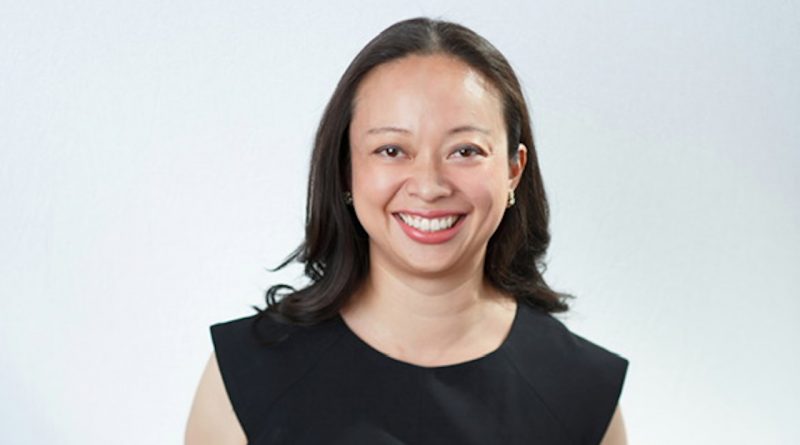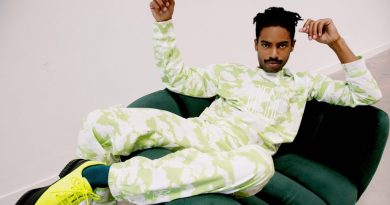Get to know the woman driving beauty’s biggest deals – Glossy
“It’s been remarkably busy on the M&A front, in a really good way,” said Vennette Ho, managing director at Financo, who advised on the ZO Skin Health, Dr. Dennis Gross and Beach House Group deals this year. “I didn’t quite expect it to be like this, seeing how everything has changed. The consumer and, in many ways, the world have been in a standstill. But, [the pandemic] has also fast-forwarded things, and that change has been good for M&A.”
Ho has been with Financo for over 16 years (after stints at Lazard in equity research and at Bloomingdale’s in fashion accessories merchandising), and is often credited as the woman shaping many of the most talked about deals in the beauty industry. Tatcha selling to Unilever? Drunk Elephant selling to Shiseido? Ho, who leads Financo’s global beauty and personal care practice, was the banker behind them.
After a significant amount of chasing and convincing, I got Ho to shine a light on herself. Ahead, she talks about her love of helping young brands, her expectations for the beauty category over the next year and the greater implications of wellness.
This conversation has been edited for clarity.
To start, what is Financo’s approach to beauty and personal care?
As a firm, we are focused exclusively on M&A and capital raising for retail and consumer brands. My first job out of school was as a merchant at Bloomingdale’s, and then I made the leap to equity research covering retail and apparel, so consumer brands have totally been in my blood. My first few deals actually were in beauty and personal care, but it wasn’t my specific focus until later. My first deal was helping a team carve Stila out of Estée Lauder in 2006, and then my second deal was helping the Neiman Marcus Group sell Laura Mercier. But then I came back from maternity leave in 2009 and I realized I had nothing to do, so I said, “I guess I’ll just start calling people.” I made a list of companies across all sectors and what I had seen out there that looked interesting. The second company that I called was a business called E.l.f. Cosmetics. E.l.f. ended up becoming the blueprint for our modern-day Financo beauty deal.
Tell me how you developed your relationship with E.l.f.
I called Joey Shamah, who started E.l.f. with his dad [Alan Shamah], and he was pretty dismissive. It’s really funny because now he is a dear, dear friend of mine, but at the time, he seemed annoyed. He said, “Call me back at 3:00.” I did, and then he told me I could come in to meet with him and his dad. I asked if they would give me the chance to help them raise capital.
What I found so interesting is that they were running E.l.f. like a family business, but it had real enterprise value and was one of the first brands to use social media. I started putting the materials together for them, and we looked at the YouTube views of E.l.f. versus Maybelline, L’Oréal and Revlon, and they were blowing everyone away. They were one of the first brands selling really good, prestige products at low prices, and it was a transformational brand for the industry because it was democratic. When we first met, Joey was like, “We’re just selling inexpensive makeup.” And I was like, “No, you are not.”
A lot of people weren’t interested at first, but TSG [Consumer Partners], to their credit, had done all this brand data and digital data, and their consumer surveys had E.l.f. off the charts in terms of customer sentiment. We did the deal with TSG then, and then years later, we ended up selling them to TPG [Growth] who later helped them IPO. The morning of the IPO, Joey called and was like, “Can you believe we’re here?”
E.l.f. obviously became a huge business, but you were with them in the early days. Would you describe your deal approach as founder-led before the phrase was so widely used?
I spend a lot of time networking and getting to know people. Our transaction size has gone up over the years. We work on behalf of strategics. We sell private equity-backed companies. But we’ll always have, as a part of our business, minority growth capital raises, which is our way of helping and getting to know founders early on. We called First Aid Beauty super early and did their first minority capital raise, and then sold them to P&G. We did Drunk Elephant’s raise with VMG and then led their sale to Shiseido. And we did it with Tatcha, as well, with their minority cap with Castanea [Partners] and sold them to Unilever. We look to do two or three of these a year, and this year so far, it’s been Dr. Dennis Gross and Beach House Group. Last year, for example, we closed 10 transactions, and they ranged from small, new brands like Kosas to the very, very big with Olapex, which was north of $1 billion in enterprise value. Our proportion of business now is definitely skewing bigger, but we’re never going to give up those growth equity raises. The little up-and-comers doing interesting things now are the Drunk Elephants of tomorrow.
With so many new brands today, how do you bet on the next E.l.f or the next Drunk Elephant?
For us, we’re always looking to see if this is a business that an investor is going to be excited about. You have to sit in the investor’s seat and say, “OK, is this a business in three years that a large strategic is going to buy?” It’s not just about doing a deal today; it’s also being able to think hard about what it’s going to take for someone to buy this company tomorrow for a big dollar amount.
The beauty industry should be super profitable, and brands traditionally have a lot of loyalty. But there are some businesses out there that are not structured to make money because they don’t have a good gross margin to begin with. Or it’s messy in the sense that they generate a ton of sales for a period of time, but eventually fade because they may never turn a profit.
On that note, what are your thoughts on the DTC versus omnichannel conversation happening now?
DTC is confusing now. There are a lot of businesses doing incredibly well and growing like crazy, especially post Covid[-19]. It’s actually relatively easy to grow a DTC if you’ve got a lot of money. You can get an audience if you’ve got something compelling to talk about, and you can grow that business pretty fast if you have dollars to spend. But the trick really is how many people come back and, are they buying again? In the spring, there was a ton of growth through low-cost new customer acquisition, which was great. But for an investor or acquirer, it’s always about how many people are buying after they buy a product the first time. Otherwise, you’re just spending money over and over again to get more new customers who don’t repeat, and eventually that catches up with you.
For great brands, DTC can be an incredibly powerful thing. If you can run a capital-efficient business and have great products and loyal customers, then you don’t necessarily need brick and mortar to get really large. Paula’s Choice is a great example of that — a large business, with great growth momentum because it has such a loyal customer base. The growth isn’t just because it is spending a whole bunch of money on customer acquisition. But there aren’t really a lot of those companies yet, and it’s a still bit early to tell for most companies.
How important is physical retail for beauty, then?
Brick-and-mortar plays a very important role, in that it gives exposure to a brand that they wouldn’t normally have. At a certain point, it actually becomes cheaper marketing than direct-to-consumer marketing, because when you’re on a shelf, you benefit from the traffic of a Sephora or an Ulta. It becomes more cost efficient to acquire customers that way. When you go to a brick-and-mortar store and you’re next to all these super well-known brands, that gives a sense of trust to a brand.
Is makeup going to come back?
We were already in a tough makeup environment before Covid. There had been so much newness and so much saturation for a while that it became hard to differentiate. But I do think you are getting some really good bright spots in makeup right now, particularly in the clean color category. Whether it’s Kosas or Ilia, it shows you that people are looking for makeup that tells a different story. If you have a product or brand that’s really differentiated or has a different message out there, you can still grow in this environment. But there are headwinds, which with Covid is people not going out as much. Every category has to look different, so when makeup does come back, it will have a different spin on it. Is it really makeup, or does it have skin-care benefits? Is there a message around sustainability or inclusivity? Uoma, Juvia’s Place and Beauty Bakerie are growing because they are doing something different. I don’t think makeup brands are going to comp up 30% just by launching new palettes anymore.
What areas of focus are you interested in?
We’re in the business of selling and raising capital for businesses, and we are always looking for brands where we can really tell a story of relevance and future growth. You’ve definitely got this theme of wellness going on, and it manifests itself in so many different ways. It’s ingestibles; it’s about peace of mind, self-care, wellness of the community, wellness of the environment and wellness socially. A lot of brands, to varying degrees, are telling that story, and I think wellness is here to stay.
What do you think about SPACs, which is trending all of a sudden?
It’s been interesting to watch the rise of SPACs in the market. This SPAC boom is different, because you are really seeing high-quality, value-added sponsors entering the market, which can really benefit some of the larger fast-growing companies out there. It’s a really interesting potential exit alternative for certain kinds of companies. The valuations can be really compelling. However, companies need to think about if being a public company is really what they want, at the end of the day.
What do you think of the reckoning many brands are experiencing with racial and social injustice; will that impact beauty deal flow?
No brand is perfect … But I think great brands have certain values and must always take actions to continually do better. While I love consumers making brands take accountability for their actions, I think sometimes the “cancel culture” can be little harsh, because brands are living, breathing things just like people. Some of them aren’t in the exact perfect place at this moment, but if a brand is taking meaningful actions in the right direction, and always improving and always striving for something better, then the customer should take note. The beauty consumer is really pushing change in the industry, and right now, she is moving faster than the industry itself. The industry change needs to happen, and I’m optimistic it will happen.


